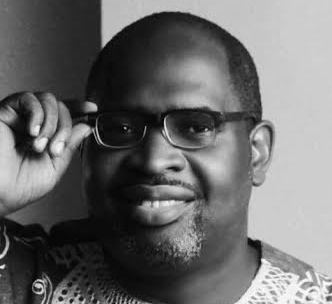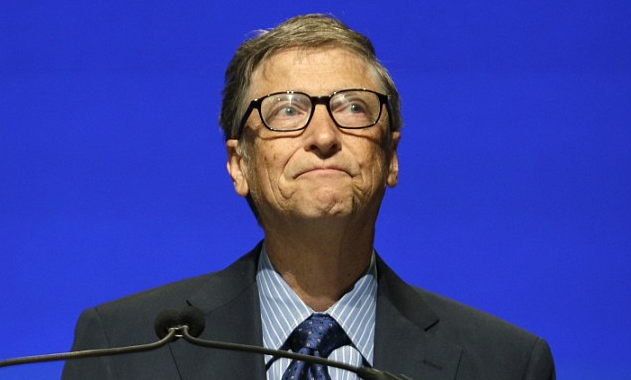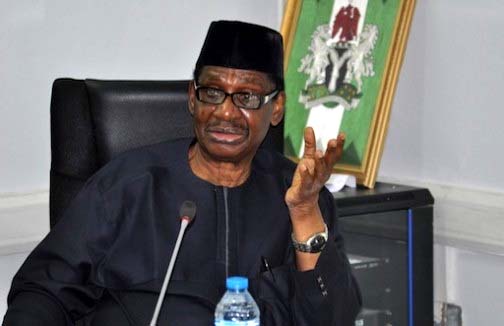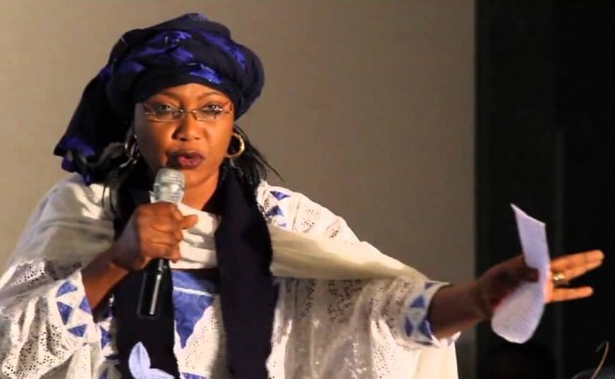Last month, an important event — Nigeria’s National Economic Council meeting — held in Abuja. As typical of government events, there were speeches made by different individuals. Some of the speakers present at the meeting include the Minister of Education, Adamu Adamu; the Minister of Health, Isaac Adewole; Bill Gates; Aliko Dangote; and the Nigerian Vice President, Yemi Osinbajo. Four Nigerians and one American. Three government officials and two businessmen.
However, of all the speeches delivered, Bill Gates’ stood out the most. Since the event, Bill’s speech has been shared, reviewed, evaluated, turned into graphics and discussed. The speech was on the headlines of major newspapers in the days following the event. One would assume Bill Gates was the only speaker that was present, but that is not the case. There were at least four other speakers.
How does a businessman’s speech become more prominent than the combined effect of the speeches of two ministers and a Vice President? How does an American come to Nigeria and shine so brilliantly?
I want to share a couple of reasons why I think Bill Gates’ speech stood out. Perhaps this may help us become better presenters and conveyors of memorable ideas.
Advertisement
First of all, Bill prepared for his speech. According to him, “In preparation for my visit, I asked a research institute at the University of Washington to model Nigeria’s economic growth under three scenarios related to health and education, the core of how economists define human capital.” The preparedness made him get relevant input to drive his points better than some of the other speakers.
Secondly, Bill Gates’ message was clear. He laid out the choices we had to make and the implications of our decisions. In his words, “Growth is not inevitable. Nigeria has unmatched economic potential, but what becomes of that potential depends on the choices you make as Nigeria’s leaders.”
Also, his presentation was factual, truthful, blunt, evidence-based and relevant. He used data, graphs and charts to brilliantly make his point. As he put it, “I do not enjoy speaking to you this bluntly when you have been gracious enough to invite me here…. while it may be easier to be polite, it’s more important to face facts so that you can make progress.”
Advertisement
In addition, the speech made a case for the shift of attention from things to people, and clearly argued that people are at the center of development. To quote Bill Gates, “To anchor the economy over the long term, investments in infrastructure and competitiveness must go hand in hand with investment in people. If you invest in their health, education, and opportunities — the human capital we are talking about today, then they will lay the foundation for sustained prosperity. If you don’t, however, then it is very important to recognize that there will be a sharp limit on how much the country can grow. The conclusion is inescapable; Nigeria’s economy tomorrow depends on improving its schools today. The same is true of health.”
The speech also spoke directly to those in power. In attendance were governors, ministers, Captains of Industry and other influential people. Bill Gates looked them in the face and essentially told them they had failed in their duties. In speaking to those in power, he was direct and addressed issues like the government Economic Recovery and Growth plan. He said, “The Nigerian government’s Economic Recovery and Growth Plan identifies investing in the people as one of three strategic objectives. But the execution priorities don’t fully reflect people’s needs, prioritizing physical capital over human capital.”
Bill Gates spoke with a lot of credibility. He used data to make his claims credible. By highlighting his financial contributions to Nigeria, Bill Gates showed he knew what he was saying.
Another thing Bill Gates did was share his speech on Twitter. While many people didn’t watch him speak, he used social media to create awareness thereby driving public engagement. He also held a Twitter chat (#ImagineNigeria with @nighealthwatch) and used that to move the conversation to the people. Bill Gates allowed Nigerians engage with him on this subject. He had spoken to the people in power and was now conversing with the everyday people. What can make for a more compelling engagement?
Advertisement
Bill Gates’ speech was respectful. While it was truthful and a clear indictment of government for not investing in people, there were no insults, abuses or any element of rudeness.
The speech was also not about him or his foundation or their impact. Rather, it was about others. It was a cry for the Nigerian whose destiny, potentials, opportunity were being negatively affected due to poor governance. Bill Gates didn’t mince words when he declared, “Nigeria will thrive when every Nigerian is able to thrive.” He could have used the speech to draw attention to himself but he didn’t.
The speech touched many parts and people. It spoke about the challenges of infant mortality, the lack of credit to farmers, the lack of quality education, literacy in adults, and reflected on the technology space and government documents. In his speech, Bill Gates quoted people like Aliko Dangote, Chimamanda Adichie, late Professor Olikoye Ransome- Kuti, and Dr. Adesina. He also spoke about issues such as children and farmers in rural areas, digital opportunities, financing, health systems, poverty and empowerment. Almost every Nigerian could relate to a part of the speech that addresses their issues.
Bill Gates went on to offer a helping hand. He spoke the truth, addressed the realities, made a compelling case that we aren’t doing well, and didn’t just complain. He offered assistance. In his words, “We want to support you in your work to mobilize more resources to invest in your country. That’s why our foundation is working with the Nigeria Governors’ Forum to help states raise internally generated revenue.”
Advertisement
Bill Gates spoke with hope. He referred to our potentials, our past success and progress and instilled in us hope that we can be different. He affirmed that, “Nigerians are known around the world for their big dreams and big ambitions.” That’s both positive and encouraging. Bill went on to say, “I believe in the grand vision of Nigeria’s future. I believe in it because I’ve seen it.”
He advocated for simple things. Bill Gates didn’t offer big suggestions, instead he offered simple and practical solutions like primary health care. And he was definite about their potentials. He said, “The conclusion is inescapable; Nigeria’s economy tomorrow depends on improving its schools today. The same is true of health.”
Advertisement
The speech had rich and quotable sound bites. How can one ignore a quote like, “People without roads ports and factories can’t flourish. And roads, ports and factories without skilled workers to build and manage them can’t sustain an economy” or “Nigeria is one of the most dangerous places in the world to give birth”?
Finally, the speech showed Bill’s understanding of the need for partnerships to move Nigerian forward. He said, “Together with the Dangote Foundation, we will be here to help you achieve your dreams and ambitions… The Nigerian private sector will continue to invest. We are eager to help, but we know we can’t lead. You must lead.” It was a clear delineation of roles and responsibility however with a clear mandate that Nigerian leaders must lead the efforts.
Advertisement
Because Bill spoke about the people, his speech resonated with many. He seemed to have spoken their minds and to the people the average Nigerian feels is responsible for his misery. Bill Gates looked like a savior who came to speak for the voiceless and address leaders to do the right thing. For some, he sounded like Moses telling Pharaoh, “Let my people go” while others saw a distant uncle telling an irresponsible father to wake up to his duties.
Bill Gates talked softly and gently while he told the truth, using data and personal credibility to make his point, drive conversation, engagement and ensure participation. Bill had the right mindset even if it meant speaking the inconvenient truth. He said, “I do not enjoy speaking to you this bluntly when you have been gracious enough to invite me here…. while it may be easier to be polite, it’s more important to face facts so that you can make progress”. He didn’t speak to just make the number, or just to perform a duty or fulfil an expectation. He spoke rightly and effectively. Bill Gates speech in Nigeria is proof of the Bible verse that says, “How forceful are right words” (Job 6:25).
Advertisement
Bill Gates gave a memorable speech. You can do so too. Yes, you can!
Add a comment







